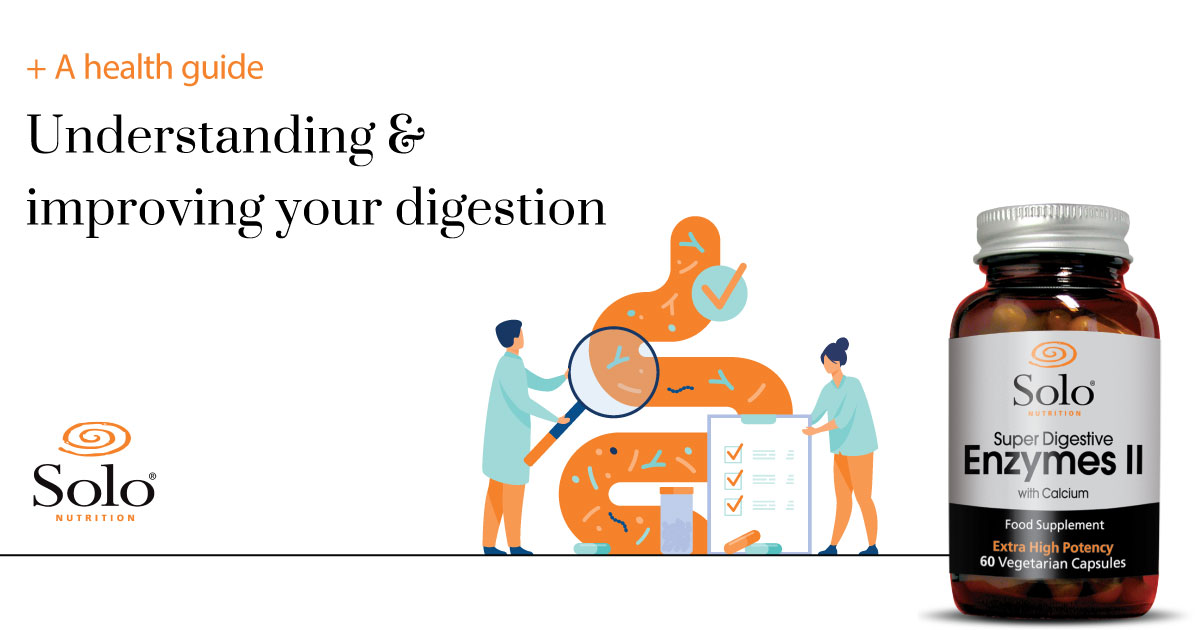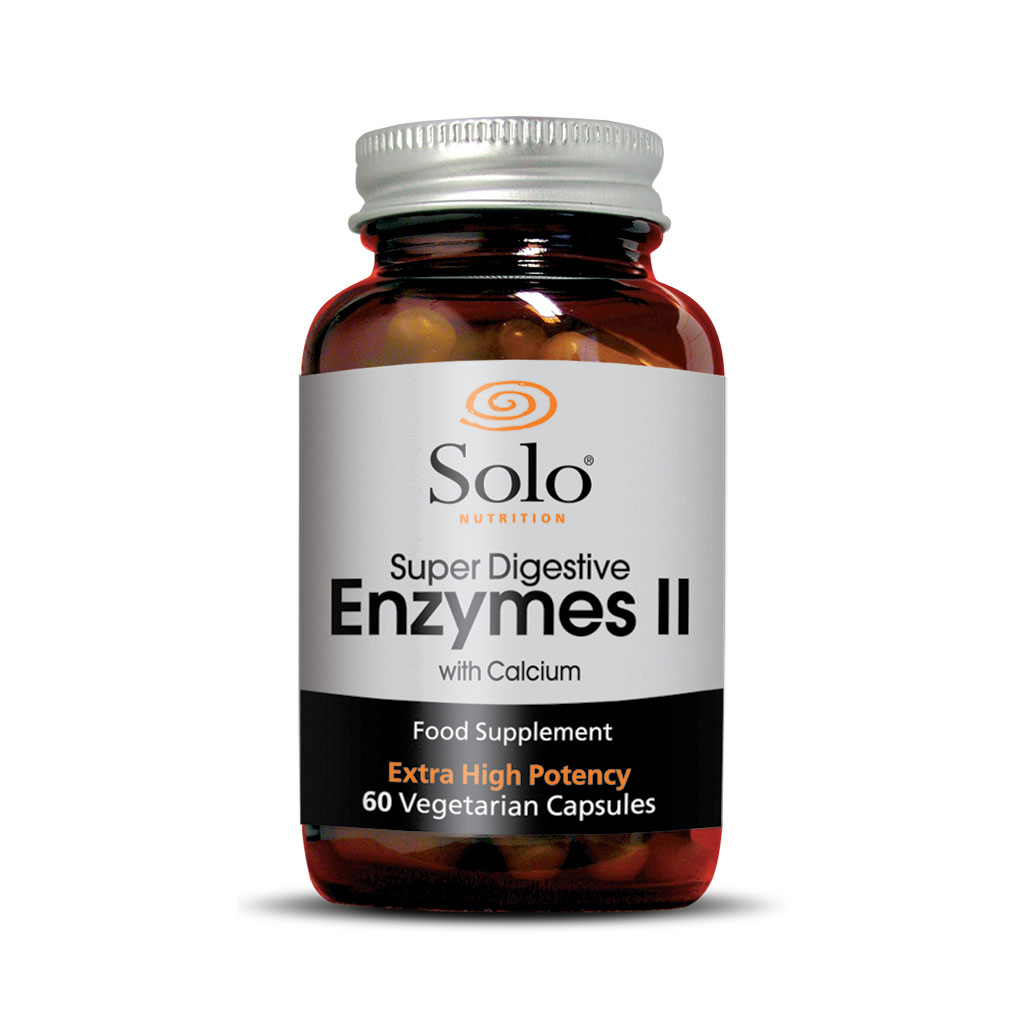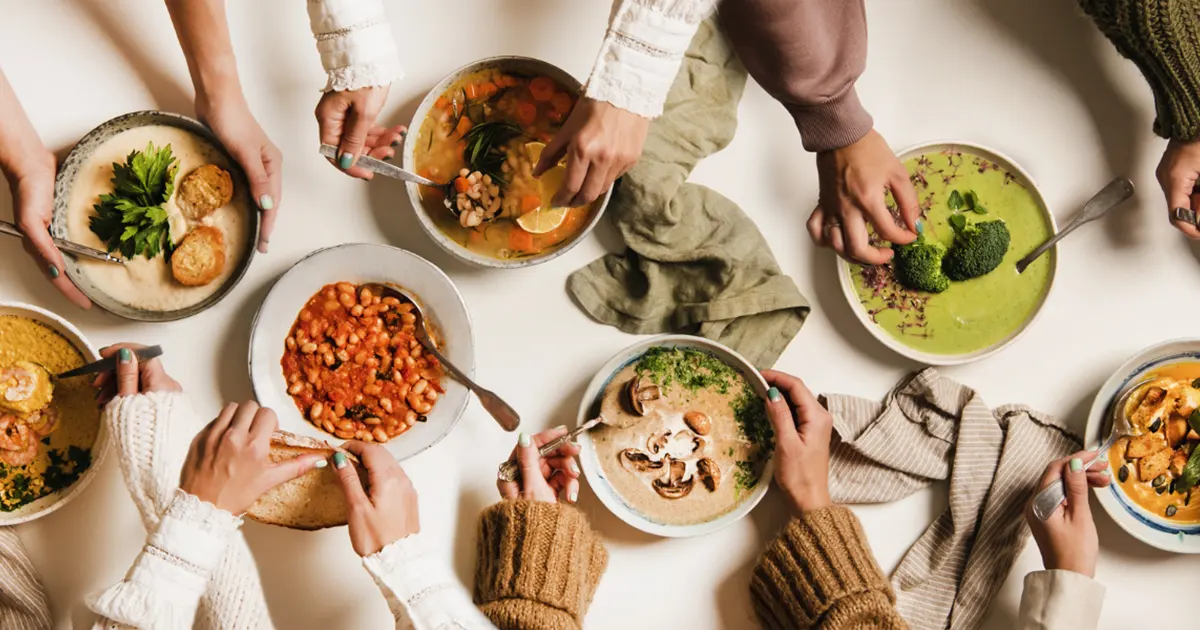
Understanding & improving your digestion
Have you ever thought what happens to your food once it has been eaten? Before food can be absorbed into the blood, it must be changed into smaller molecules in order to build and nourish cells and provide us with energy. Food has a long journey through the gut, as the entire digestive system is a single, hollow, muscular tube about 30 feet long. Understanding this is key to improving your digestion.
Contact with food is first made with he strongest muscle in the body, the tongue. Different parts of the tongue detect whether food is sweet, sour, bitter or salty. Early man found this was an invaluable asset. He also learned to avoid poisonous plants according to taste.
Digestion begins in the mouth where food is mixed with enzymes in your saliva and broken down into smaller pieces. That is why chewing your food is very important. The food then travels down the oesophagus into the stomach. One or two litres of gastric acid juice are produced here each day to sterilise the gut from unfriendly bacteria, break down proteins, and liberate minerals from our food.
Many factors can disrupt the production of stomach acid, you may feel bloated and uncomfortable shortly after eating, then consult a nutritionist. After the stomach empties food components into the small intestines, the juices of two other digestive organs continue the process of digestion.
The pancreas produces a juice that contains a wide array of enzymes to break down carbohydrate’s fat and protein. The liver produces yet another digestive juice called bile, which is stored in the gallbladder and squeezed out at mealtimes to dissolve fat.
The liver is our body’s chemical factory and detoxification centre. It helps excrete cholesterol, drugs and toxins, stores sugar, vitamins and minerals and breaks down alcohol. The liver can tolerate moderate alcohol consumption if you are healthy. Heavy drinking however overtaxes the liver and interferes with the distribution of oxygen and nutrients to the liver’s cells.
The kidneys act as filters for the blood as well as regulating the body’s water content. An average adult produces about two litres of urine per day, depending on how much fluid you consume and how much is lost through sweat and breathing. Drinking plenty of water will assist your kidneys.
Each square inch of your intestinal wall is covered with about ten billion microscopic, hair like projections called microvilli, which absorb nutrients into your bloodstream unless hindered by a typical, modern diet. Try and avoid excessive wheat products because when mixed with water, flour becomes a sticky, gluey paste, which makes absorption more difficult. Food should pass through the digestive system within 12 to 24 hours. Chew your food well, to help it through the eventful journey through the digestive system less arduous.
Super Digestive Enzymes II is the latest development in enzyme supplementation assist in improving your digestion.
-
 Select options This product has multiple variants. The options may be chosen on the product page
Select options This product has multiple variants. The options may be chosen on the product pageSuper Digestive Enzymes II
£24.95



